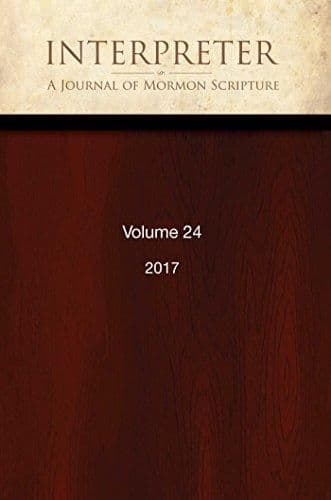Journal
Josiah to Zoram to Sherem to Jarom and the Big Little Book of Omni

Title
Josiah to Zoram to Sherem to Jarom and the Big Little Book of Omni
Publication Type
Journal Article
Year of Publication
2021
Authors
Larsen, Val (Primary)
Journal
Interpreter: A Journal of Latter-day Saint Faith and Scholarship
Pagination
217-264
Volume
44
Abstract
The first 450 years of Nephite history are dominated by two main threads: the ethno-political tension between Nephites and Lamanites and religious tension between adherents of rival theologies. These rival Nephite theologies are a Mantic theology that affirms the existence of Christ and a Sophic theology that denies Christ. The origin of both narrative threads lies in the Old World: the first in conflicts between Nephi and Laman, the second in Lehi’s rejection of King Josiah’s theological and political reforms. This article focuses on these interrelated conflicts. It suggests that Zoram, Laman, Lemuel, Sherem, and the Zeniffites were Deuteronomist followers of Josiah. The small plates give an account of how their Deuteronomist theology gradually supplanted the gospel of Christ. As the small plates close, their last author, Amaleki, artfully confronts his readers with a life-defining choice: having read the Book of Mormon thus far, will you remain, metaphorically, with the prophets in Zarahemla and embrace the Restored Gospel of Jesus Christ, or will you return to the land of Nephi and the theology you believed and the life you lived before you read the Book of Mormon?
Subject Keywords
Bibliographic Citation
Terms of use
Items in the BMC Archive are made publicly available for non-commercial, private use. Inclusion within the BMC Archive does not imply endorsement. Items do not represent the official views of The Church of Jesus Christ of Latter-day Saints or of Book of Mormon Central.